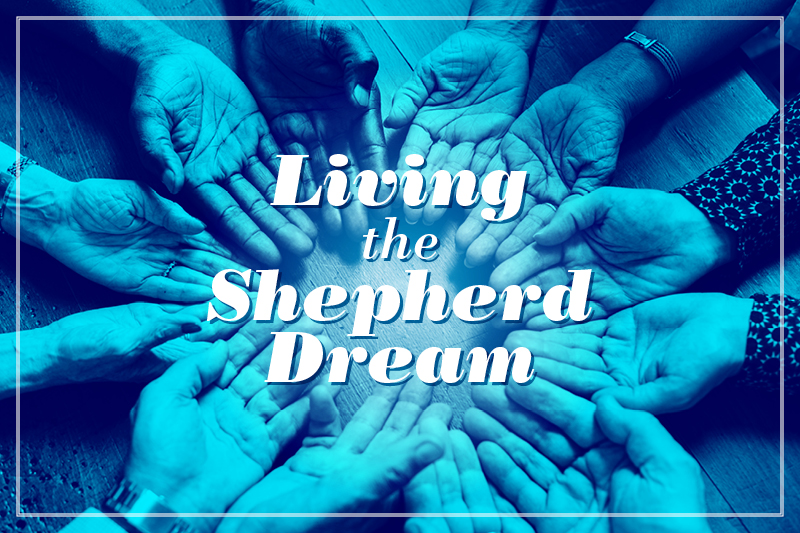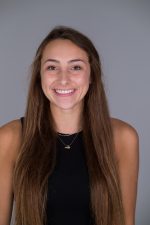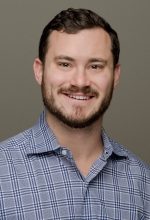‘Giving Everyone an Opportunity’ Hannah Freibert '21 interviews Mike White '10, program associate for the Robert Wood Johnson Foundation, a nonprofit that works to improve health care in America.

Editor’s note: In this series, “Living the Shepherd Dream,” current students in the Shepherd Program for the Interdisciplinary Study of Poverty and Human Capability at Washington and Lee interview alumni of the program who are working in a field that interests them. In this installment, Hannah Freibert ’21 interviews Mike White ’10, a program associate for the Robert Wood Johnson Foundation.
Hannah Freibert is a senior from Lexington, Kentucky. She is majoring in biology with a minor in poverty and human capability studies. During the summer of 2019, she pursued a Shepherd Internship with Health Brigade Clinic in Richmond, Virginia, a not-for-profit clinic which aims to provide respectful and competent care for Richmond’s uninsured population. Hannah worked alongside providers and community partners to meet the everyday medical needs of patients. This internship opened her eyes to the complexities and barriers to adequate health care, cementing her desire to pursue a career in the medical field with a specific focus on underserved communities. She will go on to start medical school in fall 2021 and seeks to grow in her passions of health care equity and advocacy.
Q: What personal experiences and interests drew you to public health advocacy?
It’s kind of crazy that what I do now is almost a 50-50 split between my parents’ professions. My father was a criminal defense lawyer working with low-income folks in Richmond, Virginia, and my mother was a professor of childhood development with a focus on how poverty impacts the growing brain. They made sure early on that I understood that a lot of what people go through is way outside their control, starting from birth, and that there systems out there that don’t work for everyone. I advocate for policies that break down barriers to opportunity for the poorest kids in America. But when thinking about what made me choose this line of work as my profession, I always go back to my time working in a Head Start as part of the Shepherd Program. I’ll never forget walking into my classroom to see dozens of kids eating pizza for breakfast – and federally subsidized pizza, at that. I knew then that the systems charged with looking out for the nation’s least advantaged kids were profoundly broken, and I dedicated myself to figuring out how I could make a difference.
Q: How does your organization work towards respectful and effective health equity?
As a large philanthropy, we constantly examine our own practices and the power dynamics we hold in the spaces we do our grantmaking. Is our money really going towards giving everyone an opportunity to be healthy? Who are we leaving out? How can we reach them? We also use our place in the scientific community to form policy specifically with the medical community, which has a long history of inequities.
Q: What remains the largest barrier to adequate health care for underserved populations today?
Two things: First, the failure among policy makers to internalize the idea that maintaining healthy community conditions is the most viable and cost-effective form of health care. Second, the health care system is currently incentivized to profit off of treatment rather than increased health outcomes, so they really have no reason to make people well in the long term. We tend to view the health care industry as broken but ultimately altruistic and fixable, avoiding the reality that the system actually works perfectly for the people who designed it. We’re seeing right now, in real time with COVID-19, the fruit of 30-plus years of having a system that really only works for a few.
Q: Did you ever struggle to marry your public health ambitions with positive and thoughtful community engagement?
Ten years ago I did, but the landscape has changed radically. There is a much clearer and more pervasive understanding among funders and nonprofits across the board that economic justice is health justice, and if you’re not doing something to fight oppression or change systems, you’re wasting your money. The nonprofit industrial complex is very real, and it’s easy to get caught doing work that just perpetuates the same sad conditions without careful planning and consideration. If you want to work through an equity lens – thoughtfully engaging the community as stakeholders and partners in whatever you do – there are more groups out there working that way than ever before.
Q: How did your undergraduate experiences at Washington and Lee create a foundation for your current field of work?
Particularly through my placements with the Shepherd Program and J-School, and my time leading a Volunteer Venture trip. The firsthand experiences facilitated by W&L in Lexington and the world showed me how our systems – public, private and otherwise – work great for a small group of folks in our country while leaving so many Americans to fend for themselves. Even the model of the Shepherd Program – imbuing an understanding of poverty into folks going into all different professions – has acutely impacted how I understand the massive and varied systems that need to change to make sure everyone has opportunity. We need everyone, regardless of profession, to be informed and on board.
Q: What advice could you offer to undergraduates who wish to enter the public health field?
Everything is public health, so don’t limit yourself! You can work through a public health lens – that is, considering how what you’re doing impacts population health outcomes – in any sector, from transportation to education to tech, and across the public and private sectors. You don’t need to be at a public health department or working in health care consulting to change systems in ways that improve health outcomes. In fact, we desperately need folks who understand public health working across every part of our economy to really make America as healthy a country as possible.
If you know any W&L alumni who would be great profile subjects, tell us about them! Nominate them for a web profile.
 Hannah Freibert ’21
Hannah Freibert ’21 Mike White ’10
Mike White ’10
You must be logged in to post a comment.